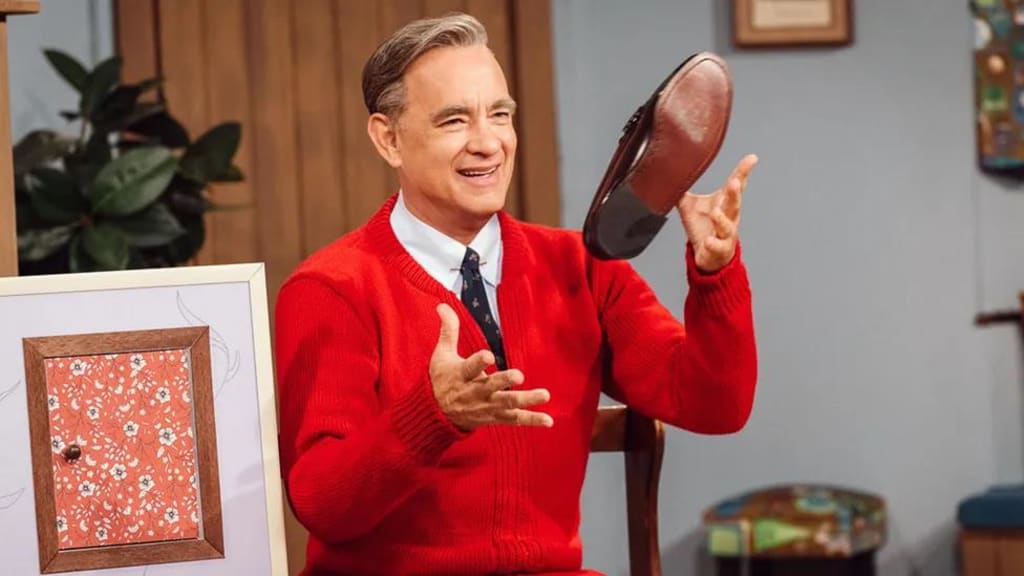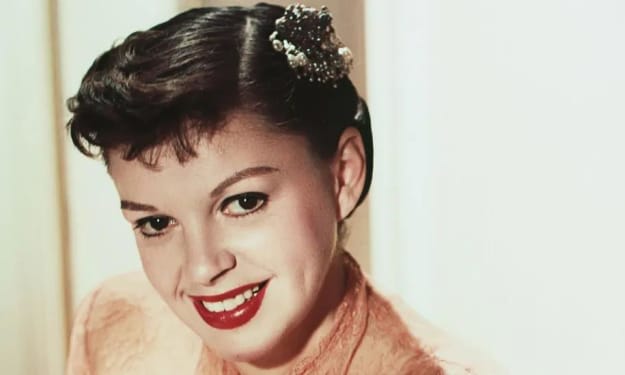TIFF review: A Beautiful Day in the Neighbourhood
Tom Hanks stars as children’s TV host Mr Rogers in “something rare – a warm-hearted film that even cynics can love”.

nyone even slightly aware of who Fred Rogers was – the soft-spoken, beloved host of Mister Rogers’ Neighbourhood, the children’s television program that taught values like kindness and forgiveness – can understand the response of Lloyd Vogel (Matthew Rhys), a hard-nosed reporter assigned to interview him. “The hokey kid show guy?” he asks, incredulous and insulted. His reaction is a perfect expression of the dread some of us brought to the idea of a film about Mr Rogers, a fear enhanced by what seemed the too-neat casting of Tom Hanks in the lead, one impossibly good guy playing another. But Marielle Heller’s wise, sophisticated A Beautiful Day in the Neighbourhood turns out to be something rare – a warm-hearted film that even cynics can love.
Heller and the screenwriters, Micah Fitzerman-Blue and Noah Harpster, have built scepticism into the film’s premise. This is not a biopic, but the story of a friendship between Rogers and a journalist. Based on Tom Junod’s 1998 Esquire magazine profile, the film creates a fictional reporter in Lloyd, a workaholic and the father of an infant son. Lloyd carries so much anger at his own father, Jerry (Chris Cooper), that he punches him at his sister’s wedding. As he did in life, Rogers instantly turns the table on his interviewer, asking him about his childhood. Over time and many meetings, he breaks down Lloyd’s resistance to both his friendship and his message of forgiveness.
This is a rich and subtle performance by Hanks
Heller imaginatively sets up this premise at the start. The film begins with Hanks recreating the television show, walking in the door as Mr Rogers did every time, putting on his signature comfy red cardigan, and singing the theme song, Won’t You Be My Neighbour? But after presenting a picture board with characters from the programme, he comes to a photo of Lloyd, his face bloodied. So much for any hint of sappiness or escapism. From there the film moves smoothly into Lloyd’s story, including the fight with his father, and the Esquire offices where he reluctantly agrees to talk to that kids’ show guy.
Hanks gets Rogers’ mannerisms just right: the sweet half-smile; the slow and precise manner of speaking. But he doesn’t coast on mimicry or his good-guy image. This is a rich and subtle performance, in which Hanks makes Fred Rogers’ sincerity completely convincing and real. When Fred turns Lloyd’s questions back on him, Hanks lets us see that the reaction is partly defensive but also based on genuine curiosity and care for other people. Rogers has such clarity about others and such a gentle way of guiding them out of their problems – never a harsh judgement from him – that by the end of the film he has come to seem like the world’s best therapist.
The relationship between Fred and Lloyd is emblematic of the many friendships that Rogers, who died in 2003, cultivated in his life and during the remarkable 33-year run of his show. That friendship is so much the centre of the story that the film leaves Fred for long stretches to follow Lloyd. Rhys matches Hanks in creating a deeply believable character, whose trajectory from furious cynic to forgiving son could easily have been either overacted or oversimplified. Rhys’s tough-minded performance reveals the hurt that has kept Lloyd so angry. Cooper is dynamic as Jerry, something of a boor, but also a man who is making a last, desperate attempt to reach his son. (That Lloyd is grappling with his estranged father and new son at once is among the screenplay’s few overdone elements.) Susan Kelechi Watson brings a loving and witty edge to Lloyd’s wife, Andrea, who responds to his scepticism about Mr Rogers by saying, “Please don’t ruin my childhood”.
The tone never becomes twee or whimsical – just as Mr Rogers did, this film takes childhood seriously
Junod’s article and Morgan Neville’s popular 2018 documentary, Won’t You Be My Neighbour, reveal how much of the film is based on reality. Like Lloyd, as a boy Junod had a stuffed bunny called Old Rabbit. A group of schoolchildren who spotted Mr Rogers in a subway car really did recognise him and lovingly sing, Won’t You Be My Neighbour, an episode recreated in one of the film’s most charming scenes.
But Heller’s inventiveness and visual flair go beyond biography to give the film a distinctive style. The establishing shots of cities, both New York where Rogers sometimes stayed, and Pittsburgh where his show was shot, are made of miniature toys, the tiny taxis and buildings reflecting a child’s view of the world. In one scene, an exhausted Lloyd hallucinates that he is part of Mister Rogers’ Neighbourhood, wandering onto the set wearing the bunny ears of Old Rabbit. Yet the tone never becomes twee or whimsical – just as Mr Rogers did, this film takes childhood seriously.
Beautiful Day is Heller’s third film, after Diary of a Teenage Girl, with its sharp eye on adolescence, and last year’s Can You Ever Forgive Me? – the story of a forger, with spectacular performances from Melissa McCarthy and Richard E Grant. A Beautiful Day in the Neighbourhood confirms her stature as a director able to reshape conventional stories with a fresh vision. With clear-eyed rigour, Heller, Hanks and Rhys put aside cheap sentiment and earn this film’s authentic heartfelt emotion.
About the Creator
Mao Jiao Li
When you think, act like a wise man; but when you speak, act like a common man.






Comments
There are no comments for this story
Be the first to respond and start the conversation.